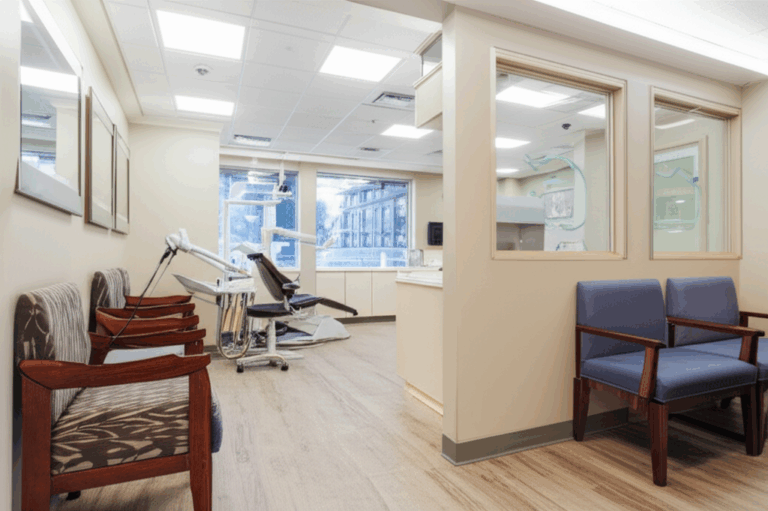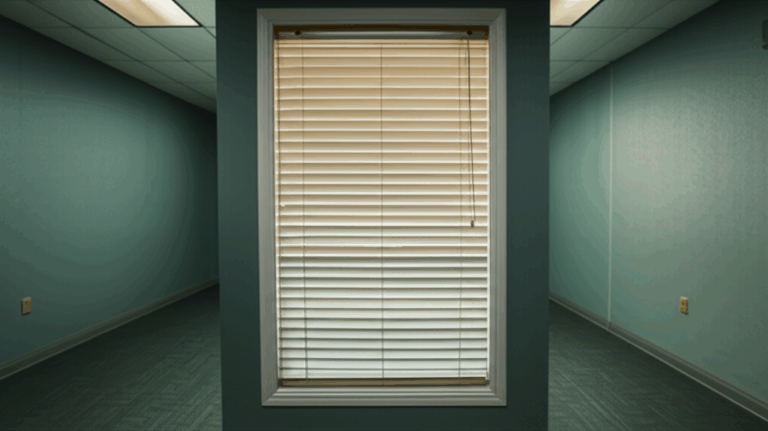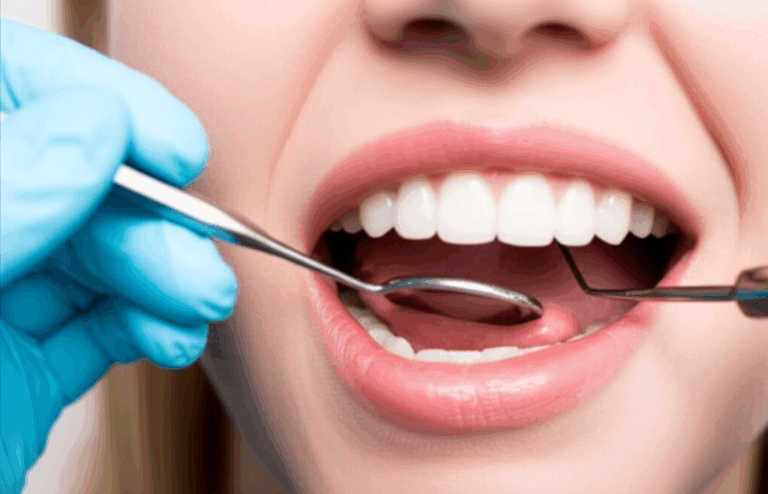
The Hidden Pressures: Why Dentists Face a High Rate of Depression and Burnout
You might not think of your dentist as someone who would have a hard time with mental health issues. Dentists, after all, are the friendly professionals who help us keep our teeth in good shape. But underneath, there’s a big problem that’s often missed: dental workers deal with some of the highest rates of depression and burnout of any job. If you’re a dentist, a dental student, or just someone wondering why this happens, you’re not alone.
Let’s take a close look at this quiet problem. Why do so many dentists, with their steady hands and caring voices, struggle with feeling down? And more importantly, what can be done to help them so they don’t have to handle all this themselves? That’s what we’ll cover right here, in easy language—and we’ll end with clear advice you can use, whether you’re a patient, a dental worker, or thinking about a dental career.
In This Article
- Beyond the Smile: Is the Dental Profession Really That Stressful?
- What’s Really Going On? The Real Reasons Behind Dentist Depression
- The Physical and Emotional Effects of Untreated Stress
- A Guide to Finding Support and Solutions
- Who’s at Risk? Seeing Who Is Vulnerable in Dentistry
- Your Healthy Takeaway: Clear Steps Forward
1. Beyond the Smile: Is the Dental Profession Really That Stressful?
It might surprise you, but dentists have depression, anxiety, and burnout way more often than lots of other jobs. You might picture a dentist’s life as simple and well paid. They have regular patients, maybe run their own practice, and the work seems routine. Right? Not really.
Research shows that dentists face special pressures and risks that take a real toll on their mental health. For example, the suicide rate among dentists has been reported as two to three times higher than the general public. Surveys say that about 12.5% of working dentists struggle with major depression at some point. These aren’t just numbers—they are real troubles, affecting dental students, hygienists, assistants, and experienced professionals.
If you’re in the dental field and sometimes feel worn out, cut off from others, or burned out, you’re definitely not alone. And if you’re just curious, let’s break it down step by step.
2. What’s Really Going On? The Real Reasons Behind Dentist Depression
To see why dentists are at risk, let’s look at the mix of job, body, and emotional challenges they deal with every day. This isn’t about blaming the job—it’s about showing the hidden pressures behind the scenes.
Demanding Precision and Perfectionism
Imagine doing a job where a tiny mistake could leave a lasting mark on someone’s looks, health, or confidence. Dentists work in a very small, high-pressure space, often under bright lights, where a tiny miss can make a big difference. It’s not just about fixing teeth—it’s about living up to patients’ big hopes, often while worried about blame, bad reviews, or lawsuits.
Many dentists aim to be perfect. That means great attention to detail, but it has a dark side: tough self-criticism, fear of slipping up, and always feeling like they need to do more. With time, this pressure can wear down even the most confident people.
Analogy: Think of a dentist’s job as doing high-wire acrobatics… but with almost no room for mistakes and a crowd that expects perfection every time.
Big Money Struggles
Starting a dental career is expensive. The average student in America leaves dental school owing nearly $300,000 in loans—sometimes more. Then there’s paying for opening or joining a practice: tools, rent, staff pay, supplies, insurance…the list keeps going.
To keep things running, dentists often feel pushed to see more patients or suggest extra treatments just to meet money goals. And with unclear insurance payments and fee cuts, that “high pay” can quickly shrink under growing costs. Worrying about money isn’t just about bills—it’s a heavy, constant worry that won’t go away.
Stressful and Tough Work Set-Up
Patient-Related Stress: Dentists don’t just work with teeth—they work with people, and not all are easy. Imagine dealing with a string of nervous patients, each with their own fears and needs, all asking you to help their pain and calm them down.
Physical Demand: Dentistry is tough on the body, not just the mind. Most dentists spend hours bent over, doing tiny work with their hands in weird positions. About 60-90% of dentists live with aches, mostly in their necks, backs, and wrists. Daily pain or discomfort wears anyone down, making low moods more likely.
Time Pressure and Small Spaces: Dentists’ days are packed, and they work for hours in tight spaces, sometimes barely stopping between patients. This fast pace can leave anyone tired, both in body and mind.
Working Alone and No Support
Lots of dentists work by themselves or in small clinics, with not much daily talk or support from others like them. When you can’t easily share your struggles or talk about your bad days—sometimes worried it makes you look weak—it’s easy to feel alone, like you’re carrying a heavy backpack each day, with no one to help.
Work-Life Imbalance and Burnout
Dentistry doesn’t end when the last patient leaves. There are notes to finish, bills to pay, business choices, and team issues. Many dentists work long hours, and even at home, their minds are still at work.
Burnout happens when job demands take away time for rest, family, and self-care. The person feels drained. Some start to feel numb, cut off, or “just getting through the day”—clear signs of burnout.
Hard Choices and Emotional Work
Dentists do two things at once: care for health, but also run a business. Sometimes, what’s right for the patient clashes with what’s needed to keep the office open. That’s not easy.
Add to that the emotional work: showing care to every person in pain, dealing with tough cases, and facing setbacks or patients who don’t follow advice. It’s exhausting—especially when this work isn’t always noticed.
Shame Around Mental Health
Finally, here’s the big one: shame. Many dentists feel they can’t admit to mental health struggles without risking their reputation—or even their dental license. This keeps people from getting help and makes things worse.
Quick Look: Top Reasons Dentistry Is So Stressful
- Need for precision and being perfect
- Big money worries from school debt and business costs
- Physical strain causing daily aches and pains
- Emotional work with patients
- Long days, little time off
- Working alone, not enough support
- Fear of being judged if you ask for help
3. The Physical and Emotional Effects of Untreated Stress
You might ask: Can all this stress really be that serious? Sadly, yes. Ignored stress and depression don’t just make for bad days. They can have deep, life-changing effects.
Depression and Anxiety
Many studies, like one in the Journal of Dental Education, show dental workers have more depression and anxiety than most other jobs. If these problems go untreated, they can affect everything—work, home, relationships, and health.
Drug and Alcohol Misuse
Sometimes, dental workers drink more or use pills to try to cope. Having access to prescription drugs and wanting to look “perfect” at work makes it more risky. Sadly, this makes things worse over time because drugs and alcohol raise anxiety and depression in the long run.
Higher Suicide Risk
This is probably the hardest fact: dentists have one of the highest suicide rates compared to other health workers. Newer numbers put them with other jobs, but the message is clear: untreated depression and loneliness can be deadly.
Less Work Enjoyment and Shorter Careers
Even if it never gets that bad, depression and burnout steal the joy and meaning that made people want to be dentists in the first place. That’s a loss for everyone—patients, families, and coworkers.
Data Table: Seeing the Size of the Problem
| Statistic or Finding | Details and Why It Matters |
|---|---|
| Higher suicide risk | Dentists’ suicide rates have been 2-3x higher than the general public |
| Depression & anxiety rates | 12.5% of dentists with major depression; up to 28% of dental students with bad anxiety |
| High burnout levels | 38% of dentists have signs of burnout (JADA, 2021); often seen with depression |
| Average US dental school debt | $285,000–$305,000; causes lots of stress for new dentists |
| Musculoskeletal disorder (MSD) rate | 60–90% of dentists have aching neck, back, or wrist pain—constant pain can increase depression |
| Perfectionism and self-criticism | High rates among dental workers; linked to worse anxiety and feeling down |
| COVID-19 impact | 69% of dentists felt anxious; 50% felt down early in the pandemic |
| Working alone | Solo dentists are more likely to feel lonely, making burnout and depression more likely |
4. A Guide to Finding Support and Solutions
Now for the most important part: What can help? Whether you’re a dentist, a dental student, or someone worried about a loved one, here’s a simple guide to stop and address depression in dental work.
Spotting Problems Early
First, know what to look for. If you feel down, low on energy, grumpy, can’t sleep, drink more, or no longer care about things you once enjoyed—it’s time to pay attention.
Think of mental health like tooth care: catching small problems early is much easier to fix. Ignoring them just lets them grow.
Action Step: Try a private or online mental health check, like ones from the National Institute of Mental Health (NIMH). They’re private, easy, and can help you know what to do next.
Building a Supportive Dental Community
No one should have to struggle alone. Peer support groups, professional organizations, and mentors can make a big difference. Sometimes, just knowing others feel the same can help a lot. If you run a clinic, try ways to bring your team together—socially or for work.
If you’re in dental school, there may be counseling or group support. Use these even if you’re not “having a crisis.” Think of it as brushing your mind’s teeth.
Making Room for Life and Stress Relief
While the challenges are real, small changes can help:
- Protect your free time. Put family, hobbies, and exercise on your calendar like you do appointments.
- Share admin tasks. If you can, split up business jobs or use easy tech to cut down work.
- Get help for your posture. Adjust how you sit, use better tools, and take short breaks to stop long-term pain—this helps your body and mood.
- Try relaxation exercises. Even a few minutes of deep breathing can ease nerves after a hard procedure.
Ending Shame and Getting Help
Dentistry needs a culture change. Mind health should be treated the same as body health. More dental groups, like the American Dental Association (ADA), now offer private support programs.
If you’re having a hard time, reach out to a mental health expert who knows how to help health professionals. Asking for help doesn’t make you weak—it’s smart.
Using Technology and Peer Support
Online groups, telehealth, and mentor meetings can break down loneliness. If you work in a small office, look for virtual groups or online workshops from professional organizations.
Real-World Example: How One Dentist Got Better
Let’s talk about Dr. Smith (name changed), who has run a solo office for 15 years. The pandemic hit, costs grew, and patient worry skyrocketed. Dr. Smith started dreading work and didn’t care about his old hobbies. After talking with a friend, he tried a peer support network and a therapist used to helping health workers. By sharing his struggles, changing his schedule, and getting help for daily pain, Dr. Smith found his purpose again.
It wasn’t a quick fix, but it started with one brave step: admitting he wasn’t alone.
5. Who’s at Risk? Seeing Who Is Vulnerable in Dentistry
While anyone can feel down, some things make it more likely in dental work:
- Solo dentists are more likely to feel alone than those in bigger or group offices.
- New dentists and students carry lots of school debt and worry about their future.
- Dentists who want everything perfect put extra pressure on themselves.
- People with a history of depression, pain, or drug/alcohol problems are more at risk.
If some of these sound like you, don’t worry. Remember, everyone has struggles—it’s not a weakness.
It’s Not Just Dentists: The Team Matters
Don’t forget hygienists, assistants, and lab techs. They have pressures, too—long hours, sore bodies, and sometimes not knowing if their job is safe.
If you’re part of a team, make a place where people feel safe talking about problems and asking for help.
6. Your Healthy Takeaway: Clear Steps Forward
It’s time for the dental world—and everyone who counts on it—to see that mental health means health, plain and simple. Here’s what you can do, starting now:
Key Points—Quick Summary
- Dentists face special pressures: need to be perfect, big debts, body aches, patient stress, and working alone.
- These issues can cause depression, anxiety, burnout, and even problems with drugs or alcohol if not solved.
- Spotting the warning signs early matters; reaching out is smart, not something to be embarrassed about.
- Finding work-life balance, caring for your body, and sharing with others help protect your mind and body.
- Ending the shame is everyone’s job—the more we talk, the sooner real answers will come.
What You Can Do Now
- If you’re having a hard time, talk to someone you trust: a friend, family member, or counselor.
- Look for help from groups like the ADA, or private support groups for dentists.
- Make time off part of your weekly plan—even little breaks help.
- For practice owners, have regular check-ins with your team and share info on stress help and mind health.
- If you want to be a dentist, remember it’s a rewarding job—but look after your own mind from the start.
Supporting Dentistry’s Future
If you’re a patient, you can help too. Be kind to your dental team—ask how they are, and show patience if they seem to be struggling. Remember, dental workers are people first.
If you’re curious about dental technology and lab work, you might want to see more about what goes on at places like a digital dental lab or a dental ceramics lab. These teams have their own pressures and play a big part in keeping dental care good and safe.
Frequently Asked Questions
Q: Is it true that dentists have the highest suicide rates of any job?
A: Past reports put dentists high, but new data puts them together with other health jobs, and their risk is still high. What is clear is that dental workers do have special reasons why depression and suicide are a bigger risk.
Q: What should I do if I think my dentist (or someone I know) is having a hard time?
A: Show care, listen, and encourage them to reach out to a professional or peer group. Share resources without judging.
Q: Are there private mental health resources for dental workers?
A: Yes. Many professional groups offer private support lines. Local choices can include Employee Assistance Programs (EAPs), therapists who help health workers, and helpful online groups.
Q: Will getting help risk my dental license?
A: The law is different in different places, but in many areas, asking for help early (before work problems happen) does not automatically risk your license. Ask your local dental board or group for more rules.
Final Thoughts: Kindness Is the Best Cure
Dentistry is full of quiet heroes—steady hands, big hearts, and a wish to make people’s smiles better. But everyone, even the strongest, needs help sometimes. If you’re a dental worker, remember: your mind’s health matters as much as your skills. If you’re a patient, coworker, or student, take this as your chance to help build a kinder, more helpful dental world.
Take care of your smile—and the person behind it, too.
If you want to know more about dental health or new things in dentistry, check out our resources on digital dental laboratory services and learn about what a top dental ceramics lab can do for both workers and patients.
If you want personal advice, reach out to your dental group or a local dentist—your health depends on it.
> Checked by a licensed dental professional. For info only; not a substitute for real medical advice—always talk to a qualified health worker about your own mental health or someone else’s.








